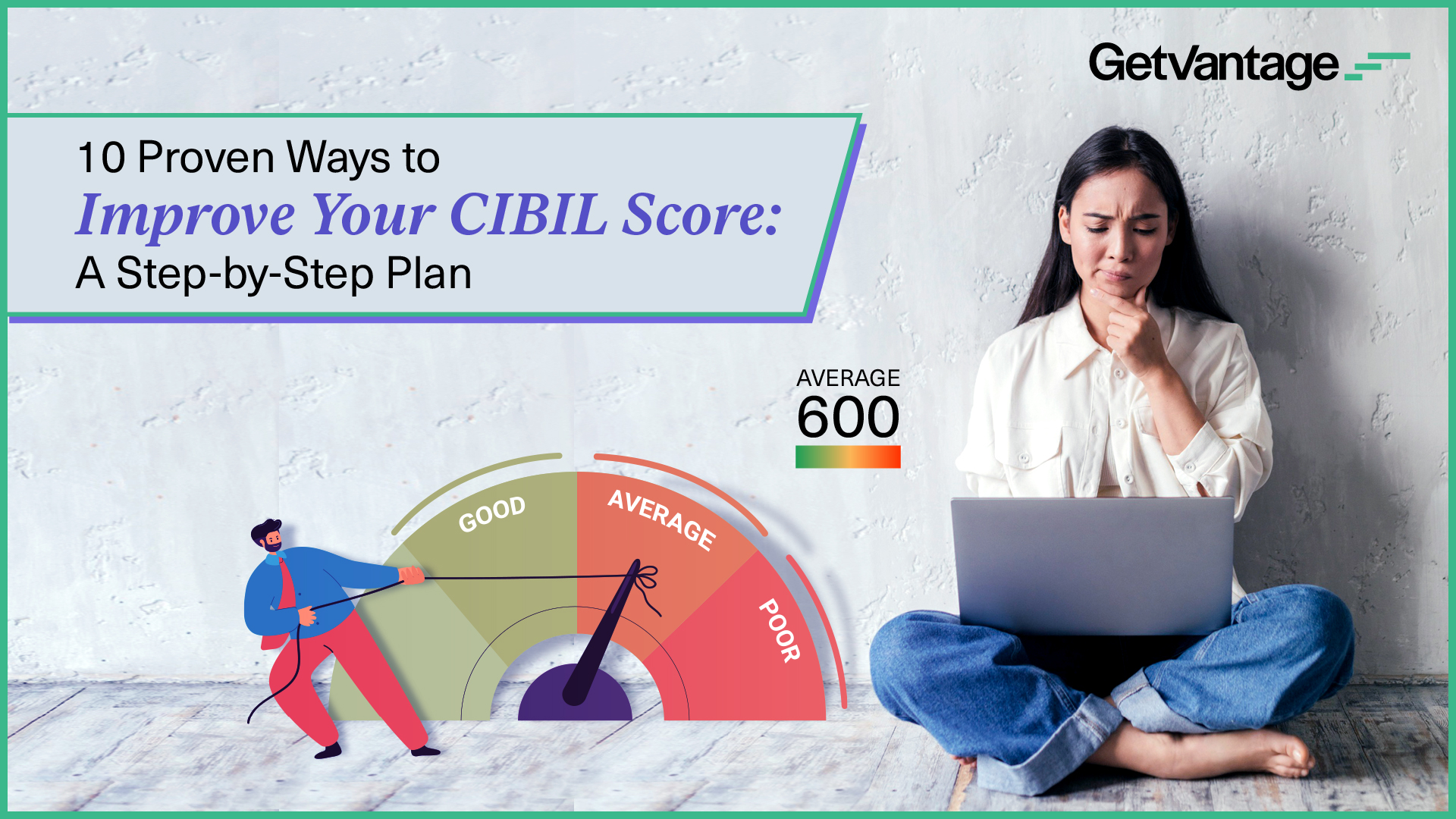To improve your CIBIL score, one should pay bills on time, reduce outstanding debt, and use a mix of credit types. To understand this in depth, keep reading further.
What is the CIBIL Score?
A CIBIL Score is a three-digit numerical representation of an individual’s creditworthiness, which ranges between 300 and 900. Scores run from a best of 900 to a worst of 300. It is generated by TransUnion CIBIL, one of the two largest credit information companies in India, based on an individual’s repayment behavior, credit history and credit utilisation.
A good CIBIL Score, typically between 700 and 900, indicates a borrower’s strong creditworthiness, increasing the likelihood of securing higher loan amounts at lower interest rates. CIBIL maintains credit data for over 600 million individuals and collaborates with 2,400 member institutions, including various types of lenders.
How to Calculate Your CIBIL Score?
Your CIBIL Score is generated from your credit history, which is reported by banks and financial institutions. Blow below are the factors affecting it –
Repayment History (35%)
Your loan and EMI repayment history have the highest impact on your score. Missing or defaulting on payments can drag it down substantially, so it’s essential to make payments on time.
Type of Credit and Duration (25%)
- Credit Mix (10%): A well-balanced combination of secured loans (e.g., home loans) and unsecured loans (e.g., credit cards) can contribute to a higher credit score. Avoiding credit altogether or relying on only one type probably won’t help.
- Credit Age (15%): The longer the history of responsible credit use, the better your score. Existing Debt and Credit Utilization (30%): The proportion of credit used compared to your sanctioned limit matters greatly. High utilisation, such as frequently maxing out credit cards, has a negative impact on your score. Thus, try to keep your credit utilisation low, as that will have a positive effect.
Credit Inquiries (10%)
Signing up for a lot of loans — or rejections — can hurt your score, indicating that you look financially unstable. You must know one who is at least eligible to apply for a loan. Only apply for loans when you are confident about meeting eligibility criteria.
How to Improve Your CIBIL Score? – Step By Step Guide
There are several ways in which you can improve your CIBIL score quickly, such as –
Check Your Credit Report Regularly
Begin with checking your credit report from authorised credit bureaus for any errors or inaccuracies. Dispute and address any incorrect entries, such as late payments or debts that show up incorrectly. The regular checks verify that your score shows your actual credit habits.
Pay your EMIs and Credit Card Bills on Time
Your repayment history contributes 35% to your CIBIL score, so consistent and timely payments are the most important factor in maintaining a good score. Schedule automatic reminders or set up auto-debit facilities to never forget a due date, preventing your score from plummeting due to late payments.
Don’t Apply for Loans or Credit Too Often
Credit inquiries can hurt your score, as they signal credit-hungry behaviour to lenders. Instead, only apply for credit when you need it, and make sure you fulfil the lender’s eligibility criteria to prevent rejection.
Raise Your Credit Limit
Ask your lender for a higher credit limit if you’re making timely repayments. Just don’t go out and start spending proportionally more because you have more flexibility, the goal here is still to maintain a low credit utilisation ratio.
Prioritise paying off high-interest debt first, all while making sure that smaller debts don’t fall by the wayside. Try using either the avalanche (focusing on the high-interest loans first) or snowball (noodle away the smaller balances first) method to chip away at your debt burden.
Don’t Close Old Credit Accounts
Older accounts comprise your credit history, which accounts for 15% of your CIBIL score. Lenders prefer to see a longer track record of credit usage, which keeps them active, even with minimal usage.
Settle Defaulted Accounts
Failure to settle defaults or outstanding bills can affect your credit report significantly. Work with your lenders to negotiate a settlement or repayment plan, being sure the accounts get marked ‘closed’ or ‘paid’ in your credit report.
How to improve CIBIL score quickly – Is It Really Needed?
A good CIBIL score (700 or above) is necessary to obtain loans and credit cards in attractive conditions. This reflects your creditworthiness, giving lenders a basis to determine your risk of lending. Here are a few tips that will help you boost your CIBIL score –
- Pay Your Dues: Clear all pending EMIs, credit card payments, utility bills, etc., on time to show that you are a paid person.
- Limited Credit Usage: Show you are in control of your spending by staying under 30% usage of your credit limits.
- Do Not Apply for Multiple Loans: Avoid multiple applications for credit or loans as you look credit-hungry.
- Consider Secured Credit Products: Obtain secured credit products and pay on time to improve your score.
- Solve defaulted accounts: Settle accounts that are in default and update to Closed. • Do Not Close Old Credit Accounts: It can help your score by keeping old accounts open and providing you and your credit report with a longer credit history.
Conclusion
A good CIBIL score ensures easier access to loans with better terms, fostering financial growth. GetVantage supports startups and MSMEs by offering quick, non-dilutive funding solutions, empowering businesses to manage finances effectively while maintaining a healthy credit profile.





